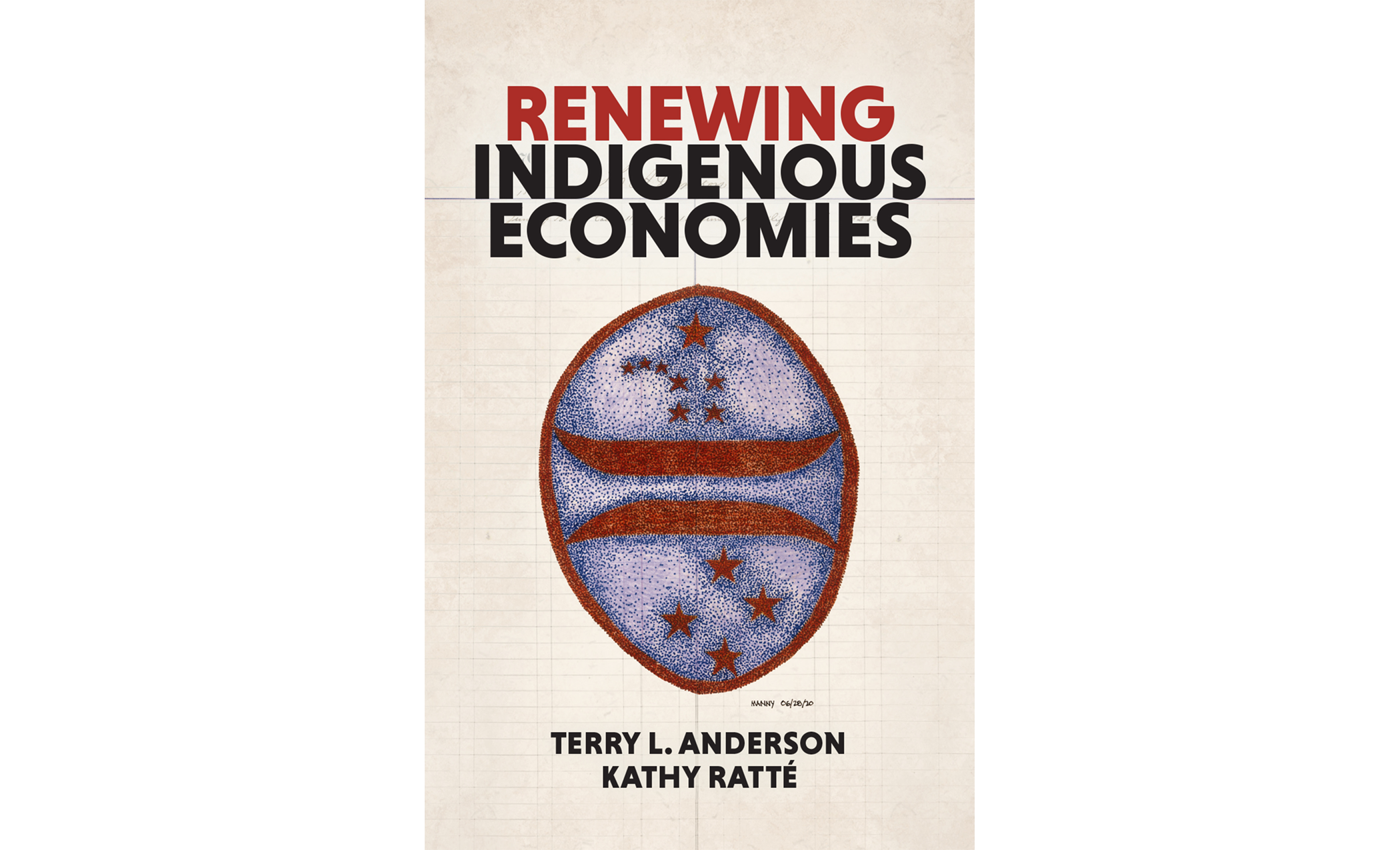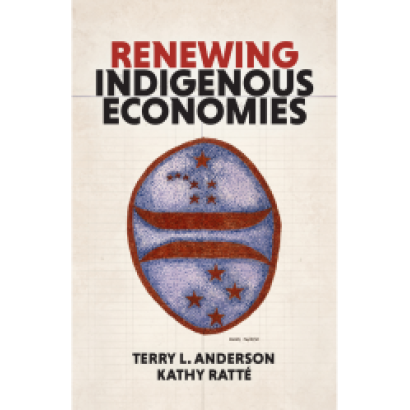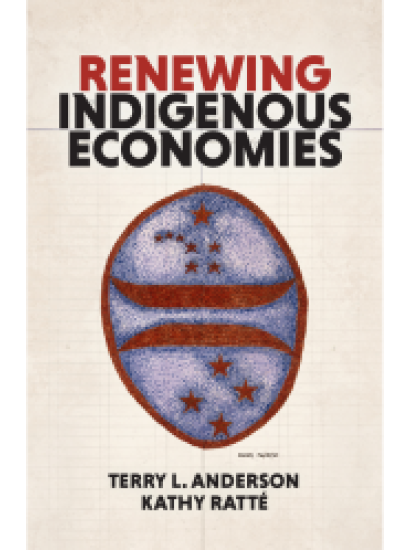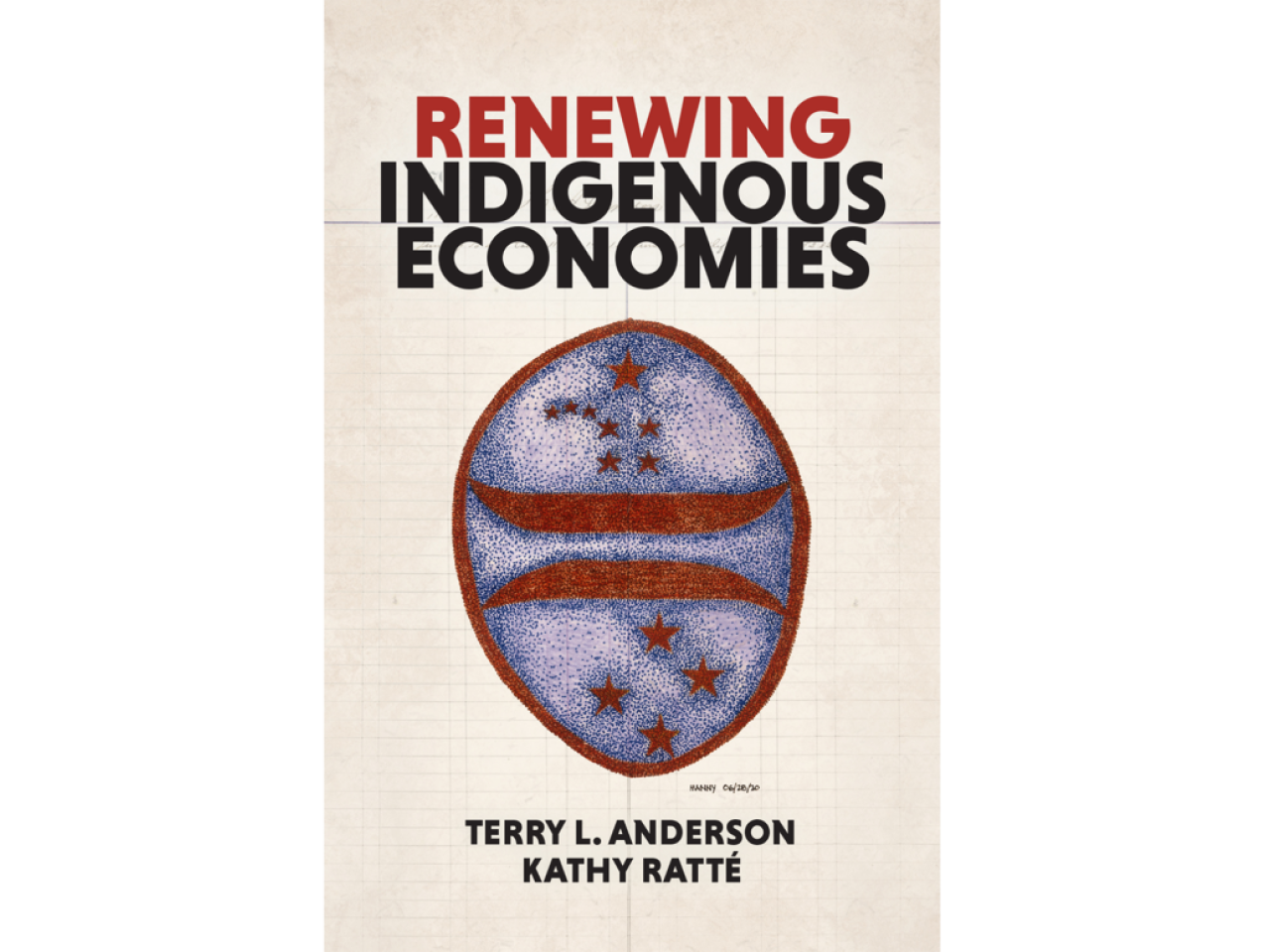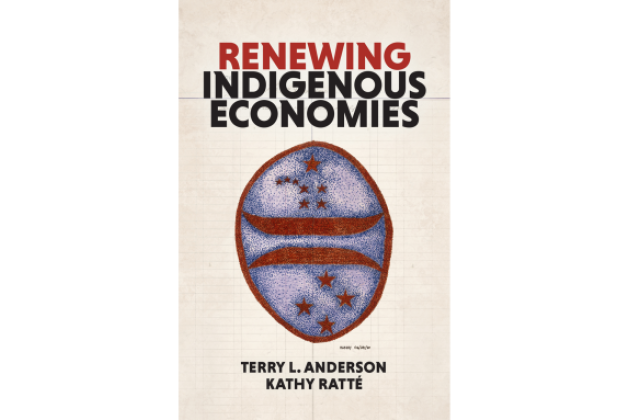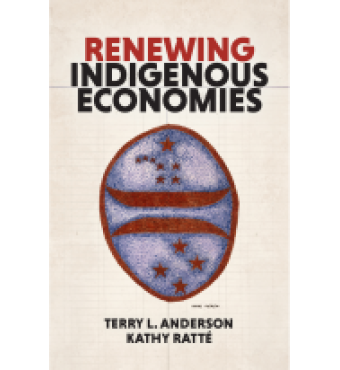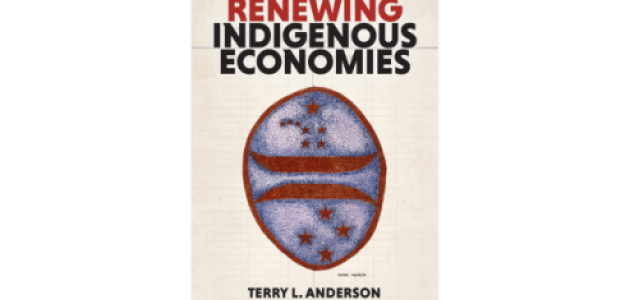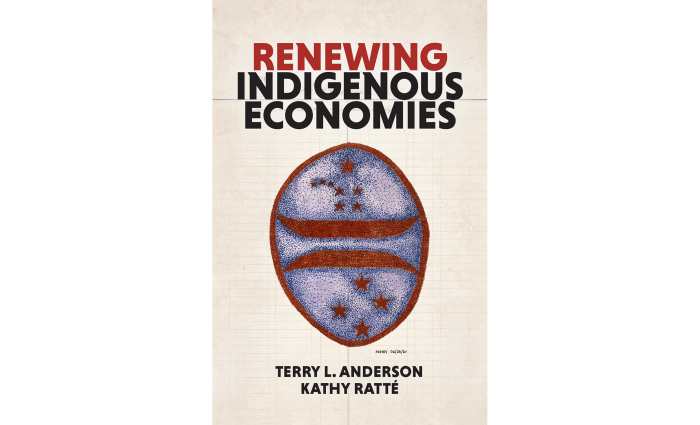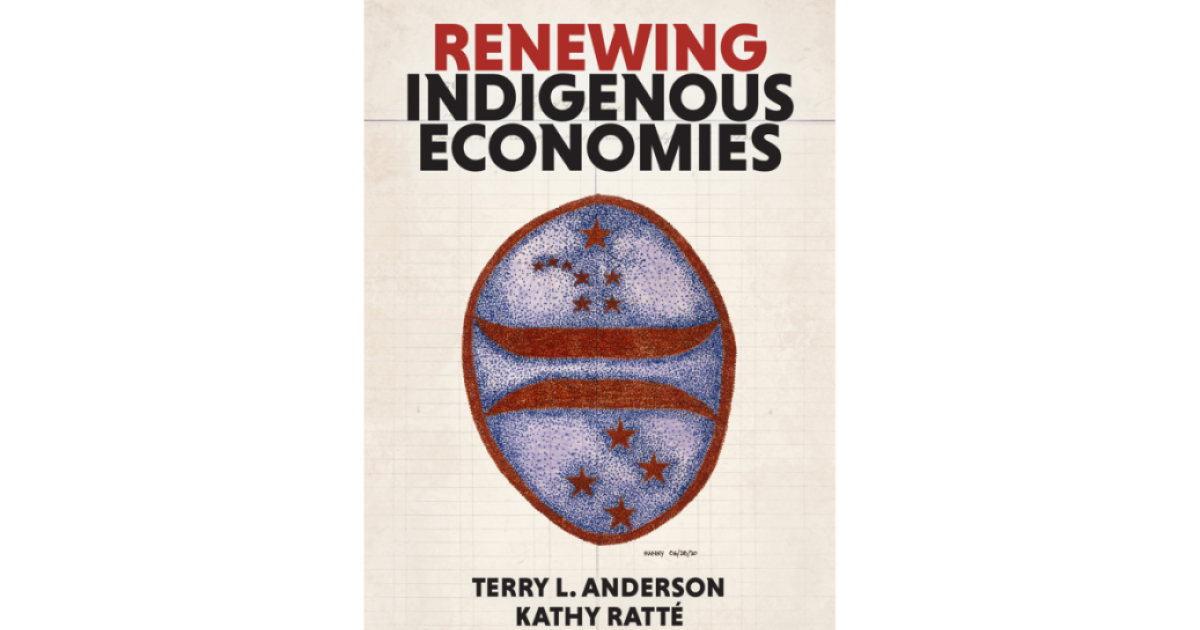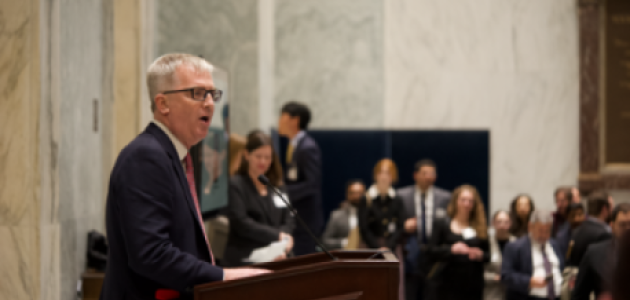Hoover Institution (Stanford, CA) – The Hoover Institution Press has published Renewing Indigenous Economies, by John and Jean De Nault Senior Fellow Terry Anderson and educator Kathy Ratté.
Renewing Indigenous Economies makes the case that prior to the arrival of Europeans, Native Americans enjoyed high standards of living, vast trading networks, and flourishing markets. European colonialism led to the crippling of Indigenous economies and centuries of poverty, dependency, and a maelstrom of social ills.
In the book, Anderson and Ratté detail this troubled history and chart a course for empowering Indigenous economies on the basis of tribal rights, jurisdiction and governance, and fiscal and financial strength. They explain how federal laws and regulations thwart the development of Indian Country and demonstrate how some tribal communities are thriving.
The authors apply data and anecdotal evidence to illustrate how revitalizing specific institutional frameworks can restart the engine of economic growth in Indigenous societies, create prosperity, and restore the dignity that comes from self-sufficiency.
“Despite the difficulties, more and more Indian nations are finding paths out of this morass. They are eschewing grants from their federal guardian and, instead, building self-sufficiency by generating revenue,” Anderson and Ratté write in the book’s introduction, adding, “There is no single path back to the future; the way will be unique to each and every tribe. Understanding the past and present, however, can help Indians to navigate the path and to cope with its inevitable twists and turns.”
Throughout five chapters, topics of the book include: how Indian people lived in comfort comparable to that of their European contemporaries prior to the colonial period (chapter one); how colonialism imposed insurmountable costs on Indigenous economies and severely limited Indians’ abilities to adapt (chapter two); the differences between Indian and non-Indian Americans’ perspectives of property rights and how those differences impact incentives to use resources productively (chapter three); how the legal environment, law enforcement, and collective decision making through government differ on and off reservations and how these gulfs generate conflict and deter investment (chapter four); and how inaccessible private-sector institutions and rules limiting fiscal autonomy of tribal governments discourage Indian entrepreneurship (chapter five).
Advance Praise for Renewing Indigenous Economies
“This book highlights age-old problems, including disastrous federal policies that undermined tribal governments and handicapped tribal economies, and it also highlights innovative, tribally developed solutions to these problems, demonstrating that the path to reinvigorating tribal markets and economies runs through tribal self-governance. The book is also a good reminder that tribes exercising sovereignty and self-governance have a responsibility to create stable economic regimes to attract investment to reservations.”
—Kevin Washburn, former assistant secretary for Indian affairs, US Department of the Interior
“Sharing our jurisdictional innovations is the only way we will creatively destroy colonialism and renew our economies. This book is full of practical examples that tribes have developed and advanced to support more sustainable economies and communities. This should be part of the applied economics curriculum in every tribal college.”
—Manny Jules, former chief of the Kamloops Band of Canadian First Nations and chief commissioner of the First Nations Tax Commission
“Drawing on historical, legal, and business data, Anderson and Ratté provide fresh insights into pre-contact and colonial American Indian tribal economies, unique cultural landscapes in Indian Country, and practical pathways forward based on contemporary tribal success stories. This important study is a must-read for tribal governments and citizens alike who are looking to establish economic sovereignty and entrepreneurial self-sufficiency.”
—David Sickey, Coushatta Tribe of Louisiana chairman and council member, 2003–21, and founder and CEO of Sickey Global Strategies
About the Authors
Terry L. Anderson is the John and Jean De Nault Senior Fellow at the Hoover Institution, Stanford University, and author of forty books, including Unlocking the Wealth of Indian Nations.
Kathy Ratté is a former high school teacher, curriculum designer, and online educational instructor, and is currently a consultant in economic education for the Alliance for Renewing Indigenous Economies.
For coverage opportunities, contact Jeffrey Marschner, 202-760-3187, jmarsch@stanford.edu.







